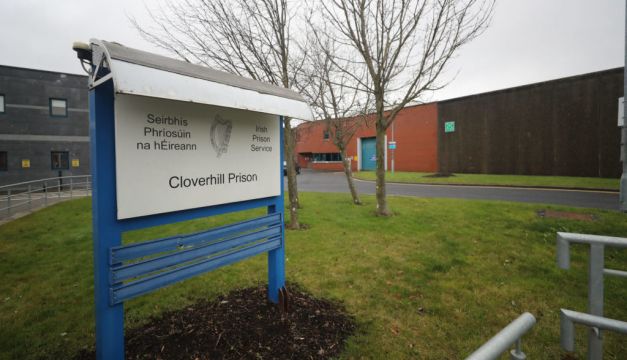A mentally ill prisoner who scalded his cellmate with hot water before strangling him has been found not guilty of murder but guilty of manslaughter by reason of diminished responsibility by a jury at the Central Criminal Court this afternoon.
At 3.46pm today and after deliberating for four hours and 25 minutes over two days, the jury foreperson told the registrar that a majority verdict had been reached and that Michael Connolly (55) was guilty of the manslaughter of Mark Lawlor in Cloverhill Prison in 2019.
The jury had heard that Connolly, who is originally from Louth, believed that Mr Lawlor (37), from Drumcondra, had “some kind of exalted identity like a king” and was "a kingpin of Dublin" when he killed him in a cell in the prison.
Connolly had pleaded not guilty to the murder of Mr Lawlor by reason of insanity.
The jury had been told that a disagreement on the findings of two psychiatrists was “the nub of the case”.
On Monday, Ms Justice Siobhan Lankford told the jury that they had to choose between the expert psychiatric evidence of Dr Stephen Monks and Dr Sally Linehan in order to decide whether the accused was entitled to the special verdict of not guilty by reason of insanity or a verdict of manslaughter by reason of diminished responsibility.
At around 2.45pm on Tuesday, Ms Justice Lankford told the jury that they did not have to be unanimous in their verdict and that the court would accept a majority verdict not below 10-2 from the seven men and five women.
The foreperson told the registrar that the verdict was one of a 10-2 majority.
Evidence
The jury had heard evidence from both Dr Monks and Dr Linehan that Mr Connolly suffers from paranoid schizophrenia. Dr Monks also said that his colleague Dr Brenda Wright said Mr Connolly presented as “floridly psychotic” when she assessed him.
However, while Dr Monks said that the accused did not understand the nature and quality of his actions, Dr Linehan said she did not think he was suffering from his mental illness to such an extent as to bring him within the definition of deserving the special verdict of not guilty by reason of insanity.
At the start of the trial, counsel for the DPP, Tony McGillicuddy SC said that prisoners in the adjoining cell heard a scuffle and someone called out “Davey” or “David”.
The prisoners thought it was Mr Lawlor, and he sounded hoarse, so they thought he was choking. A prison officer responded and when he looked into the cell, he saw Mr Connolly on top of Mr Lawlor with his hands around his neck.
Garda Inspector Darragh Kenny confirmed to Mr McGillicuddy that a postmortem revealed that Mr Lawlor had sustained multiple superficial burns with blistering on his face, neck and arms, which were consistent with having been scalded by having boiling or hot water thrown at him.
He suffered manual strangulation and straddling of the chest, causing asphyxia leading to death.
Delusional beliefs
Mr McGillicuddy said a psychiatrist found that Mr Connolly had delusional beliefs, including that the prisoners were in league with prison officers in “a homosexual conspiracy”. Counsel said the psychiatrist noted that Mr Connolly had formed the delusional belief that Mr Lawlor had “some kind of exalted identity like a king”.
In her charge to the jury, Ms Justice Lankford said that in order to meet the criteria for a special verdict of not guilty by reason of insanity, the jury had to be satisfied that the accused did not know the nature and quality of the act, did not know that what he was doing was wrong, or was unable to refrain from committing the act.
The judge said that both consultant psychiatrists who gave evidence in the case agreed that Mr Connolly was suffering from a mental disorder at the time of these events, and they both agreed with the diagnosis of paranoid schizophrenia, but they disagreed on the matter of whether he was entitled to the defence of the special verdict.
Interviews
Ms Justice Lankford said that while Dr Monks said that the accused did not understand the nature and quality of the act, Dr Linehan said that, after reviewing the accused’s interviews with the gardaí, she found he understood he had killed another person.
“This is the most significant issue you must resolve. The nub of the case is which psychiatrist’s evidence do you prefer,” the judge said.
Ms Justice Lankford went on to say that Dr Linehan had given evidence that it would be appropriate for the jury to consider a verdict of guilty of manslaughter by reason of diminished responsibility.
After beginning their deliberations, the jury returned with a question for Ms Justice Lankford, asking on what dates Dr Linehan had seen and assessed the accused.
They were informed that Dr Linehan interviewed Mr Connolly four times between March 2021 and April 2022, while Dr Monks saw him twice in December 2022.







